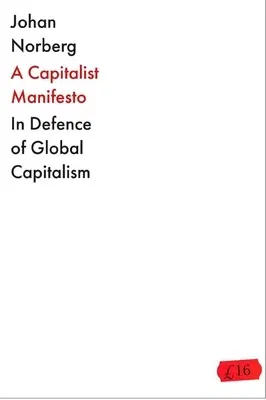Marx and Engels were right when they observed in the Communist
Manifesto that free markets had in a short time created greater
prosperity and more technological innovation than all previous
generations combined. A century and a half later, all the evidence shows
that capitalism has lifted millions and millions from hunger and
poverty.
Today's story about global capitalism, shared by right-wing and
left-wing populists, but also by large sections of the political and
economic establishment, does not deny that prosperity has been created,
but it says it ended up in far too few hands. This in turn has made it
popular to talk about the global economy as a geopolitical zero-sum
game, where we have to fight to control new innovations, introduce trade
barriers and renationalize value chains. While, more broadly, capitalism
is accused of fueling glaring inequality, populist revolts, climate
change and China's global conquest.
In this incisive and passionate investigation, Johan Norberg instead
states the case for capitalism and the vital role played by the free
market in today's uncertain world. Ultimately, he argues that that a
move away from global capitalism would not only squeeze the growth out
of the economy but also deepen an already large social exclusion for the
vulnerable - for the world's poor, it would be a killing blow.

